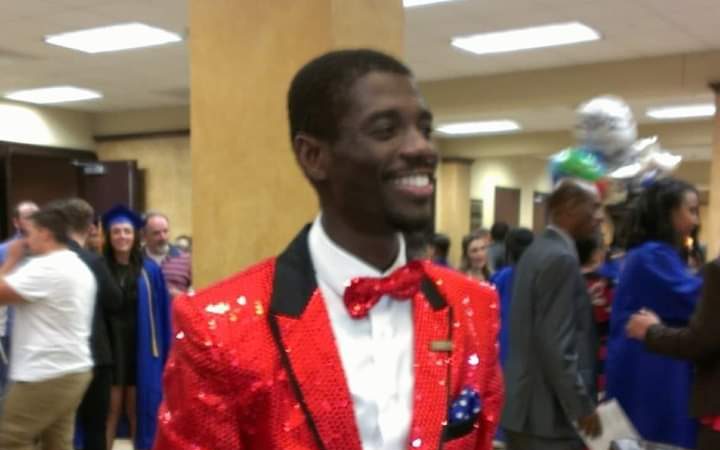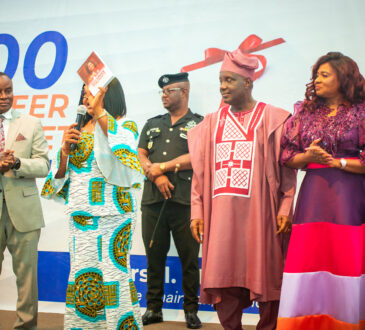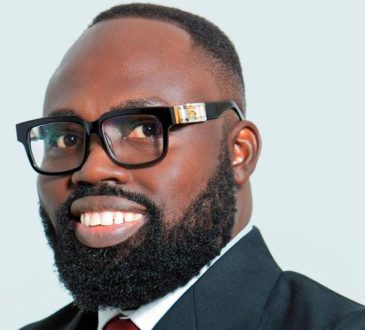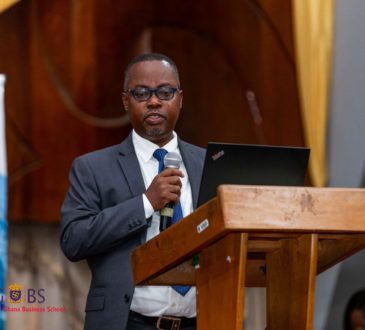
Democracy is a form of government, a way of life, a goal or an ideal, and a political philosophy. The term also, connotes a country that has a democratic form of government. The word democracy means rule by the people. United States President, Abraham Lincoln described such self-government as “Government of the people, by the people, for the people”. In a democracy, the people might directly or indirectly participate in government. Under circumstances, where the mobilization of the people take place in a designated setting for discourse on community development, the democratic practice is termed: pure democracy, which in other terms referred to as direct democracy. This practice was characteristic of the Greek City – State of Athens, and a modern practice in the New England town meeting.
In recent consideration of the term democracy, a large frame of picture is formed of representative democracy. Geographical delineation, technological advancement, population growth and their attendant effects do not conveniently permit all the citizens to meet as a group to form their laws and take decisions. This has eventually given room for representation at local, regional and national structures in the execution of roles and responsibilities of the majority of the citizens. An assembly of representatives may be called a council, a legislature, a parliament or a Congress, the latter been the prevailing situation in the United States of America. When their freely elected representatives in the composition of the government legitimately represent the people, then we say the composition of the government is a “democratic republic” or a “republican government”.
In democracies, mostly, voting decisions are based on majority rule – that is more than half the votes cast. In Ghana, a country that prides itself a democracy as well, election of the presidency is based on majority rule of 50% + 1 of the total votes cast. At times, and perhaps, in run-off elections, a decision by plurality also, called simple majority is employed. A candidate with a plurality receives more votes than any other candidates, but does not necessarily have a majority of the votes cast. On the contrary, in the United States, a simple majority of the popular vote alone cannot determine a legitimately elected president therefore, the Electoral College system is adopted. Even in some countries including the United States, elections to legislative bodies are conducted according to proportional representation. Such representation awards a political party a percentage of seats in the legislature in proportion to its share of the total vote cast. This kind of development and its connected advantageous political agenda informed the issue of “The citizenship question” in the United States’ last Census Bureau’s exercise, which same concern, ended up been quashed at the Supreme Court, and in favor of the advocacy of the Liberal ideological stream or the extreme left.
Individual equality and freedom, apparently, underpins the major principle of a democratic culture. By individual equality and freedom, the citizenry in a democracy should be entitled to equal protection of their persons, possessions, and rights, and have equal rights of political participation. They should equally enjoy freedom from undue interference and domination by government. They should be free within the framework of the law, to believe, behave and express themselves as they wish. The ideals of a democratic society must seek to guarantee the citizenry certain degree of freedoms, including; freedom of religion, of the press, and of speech. The individual’s freedom to associate him or herself with a group; and to be part of an assembly or a congregation, and social dignity must under no circumstance be infringed upon. He or she must be protected from arbitrary arrest and imprisonment and have the freedom to work and live where and how they choose.
In the administration of a nation – state, it is undeniably factual, that constitution of government is indispensable. However, important this remains, some citizenry within the framework of a democratic tenet believe that the over involvement of government’s role in such sensitive areas as welfare, education, employment, and housing has the tendency to subjugate the freedom of the people and consequently, subjected to too much governmental regulations in such areas as indicated. This is a major threat to this group of political philosophers; The Liberals and The Conservatives – the latter been the fervent supporters of more government involvement in the institutions of a democracy, and acute critics of the former respectively.
The application of democratic principles in everyday life is no easy a work to talk of. It must therefore, be recounted that the themes of controversy and discourse in modern democratic societies is further enhanced by the emergence of this group of analysts. In Ghana for instance, freedom of speech, press, religion, and assembly are protected by the 1992 Fourth Republican Constitution. In guarding these freedoms therefore, the judiciary arm of government has tried to balance the interests of individuals against possible injury and damage to other people and the community. Even in matured democracies such as the Western democracy, recent attacks on state institutions and human lives have become real challenges to the onward progress of their democracies. The January 6th 2021 insurrection of the US Capitol, the murder of Floyd, the Kenosha shootings and many other such extremisms and their attendant democratic “protestations” challenge the core of the very principles and tenets of democratic freedoms in modern times.
In this respect, the right of free speech does not allow people to falsely damage the reputations of others. It also, does not allow people to shout “FIRE!” in a crowd when in fact, there is no need for “FIRE”. In the early 14th, through the 16th centuries, the cultural rekindle demanded the Renaissance spread throughout Europe. The internal drive for Independence and self – sufficiency from monarchical influence and dictatorial tendencies were reawakened. This brought a massive shake within the political paradigm and catalyzed the growth of democracy. The demand for freedom was everywhere and in all spheres of lives. This new ideological move equally energized the Protestant Reformation, which emphasized the importance of individual conscience. Catholics and Protestants defended vehemently, the right to oppose absolute monarchy; the efforts of Martin Luther – highly commended. They agreed that the political power of earthly rulers is sourced from the consent of the people as Albert Einstein rightly puts: “My political ideal is democracy. Everyone should be respected as an individual, but no one idolized”. The Industrial Revolution in the 19th century welcomed immense political reformation of remarkable importance. The working class demanded and received greater political rights. New laws gave more citizens the right to vote. The freedoms of speech, the press, assemble and religion were extended and enlarged.
In its universal context, the democratic tenets have their own value systems that uphold the integrity of the concept and or philosophy. Underrating these value systems of democracy, invariably, mars the beauty of the practice and calls for resentment. In a democracy, respect for human rights is an indispensable matrix to warrant any favorable outcome. In a democracy, everybody matters so much so well that the infringement of an individual’s right be it a first generation – civil right, second generation – socio-economic right or third generation – collective right of solidarity and fraternal reconstruction and realignment are potential orchestrations to generate insecurity, anarchy and underdevelopment. Such rights as free movement; speech, association and responsibility to the state must under no circumstance be compromised.
Again, in a democracy, elections at all levels must be free and fair. Elections give the people a chance to choose their leaders and express their opinion on issues. They are held periodically to ensure that elected officials truly represent the interests and aspirations of the electorate. The possibility of being voted out of office helps assure that these officials pay attention to public opinion. The democratic process is age – bound. Likewise, the United States and many other Western democracies, in Ghana, a citizen of 18 years and above, who is of sound mind as described under the 1992 4th Republican Constitution, qualifies to vote and the process, permits citizens to vote by secret ballot, free from force or bribery, oppression or the use of incumbency. The process also, requires, that the election results be protected against rigging, irregularities or any dishonesty of the sort. In the same spirit as the various courts of the Judiciary Arm of Government supervised and dispensed election related cases including even the Supreme Court of the United States in its 2020 presidential and Congressional elections, Ghana’s own Presidential and Parliamentary elections have been brought under the same litmus test, with the Apex Court having to adjudicate the Presidential Election Petition brought before it by the opposition New Patriotic Party in 2012 and the National Democratic Congress in 2020, the latter, against the current President and the Electoral Commission as Respondents – this is the essence of Rule of Law.
Decision – making is of course at the heart of democratic practice. In this vein, majority rule and minority rights are critically protected under a true democracy by the enactment of state institutions. In Ghana, like the United States of America, the Constitution is the guarding document. Decisions by majority rule or popular acclamation are used to decide policy direction as well as the election of officers in a democracy. Majority rule is based on the idea that if all citizens are equal, the judgement of the many will be better than the judgement of the few. Democracy also, values freely given consent as the basis of legitimate and effective political power. But it also, believes in the protection of the minority rights and views in the expression of dissent as might be considered in proportional voting – cross boundary voting on consensus and pluralism.
Another essential value system of democracy is the development and activities of political parties. In fact, rival parties make elections meaningful by giving voters a choice among candidates, who represent different interests and points of view. In democratic countries like Ghana, the political party or partiesthat are out of power serve as the “loyal opposition”. They criticize the policies and actions of the ruling party. However, in a dictatorship, criticism is a treasonable offense, typical instances across the World are Syria, China, Russia and those Communist ideological cohorts, struggling to embrace the Western democratic culture. Recently, we are witnessing Russia’s unprovoked invasion of Ukraine, the arrest and imprisonment of Russia’s main opposition leader Alexei Navalny, which decisions have attracted the United States attention in its Foreign Policy directive. Other Western voices in this direction are the United Kingdom, Germany and France. Myanmar’s democracy was overthrown through the barrel of the gun – another instance that put United States Foreign Policy under rigorous test especially, under the new administration of President Joe Biden. The democratically elected government of Niger in West Africa has been overthrown by military junta as a more recent development of which ECOWAS’ diplomatic incursions and tact is provoked. In a true democracy, power is co-equally distributed among the three Arms of Government under the principle of Separation of Powers, thus, the Executive, the Legislature and the Judiciary, where each performs an oversight responsibility over the other in its principles of Checks and Balance – paving way for the Rule of Law.
Private organization is a very essential value of democracy that guards against tyranny and dictatorship. Individual and private organizations carry on many social and economic activities that are for the most part, free of government control. For example, newspaper and magazines are privately owned and managed. Labor Unions are run by and for the benefit of workers not the state. John Galsworthy says, “The measure of a democracy is the measure of the freedom of its humblest citizens”. Democratic governments generally do not interfere with religious worship. Private schools operate along with public schools. The people may form groups to influence opinion on public issues and policies. Most businesses are privately owned and managed.
The Declaration of Independence in 1776 expressed the belief that “All men are created equal, that they are endowed by their Creator with certain unalienable rights, that among these are life, liberty, and the pursuit of happiness”. The declaration indicates, that the people may change or abolish the government if it interferes with those rights. It is believed that the greatest hindrance to individual freedom and equality are political. Freedom could only be preserved through the change of government from military tyranny or dictatorship or monarchy to a republic. If this conclusion is true, then we ask: “Is our Global Democracy Dwindling or Growing?”
It is quite obvious that the government that governs least, governs best. It is however, becoming extremely pressing that government regulation of society and the economy is inevitable to the extent of making personal freedom any more meaningful; and to promoting equality as well as to improving the welfare of the citizenry. Some governments today, if not most of them, claim to be democratic, but many of them lack some essential freedoms usually associated with democracy. In some countries, for example, in the Middle East, Far East, Asia in general, Africa and the Americas, the people are not allowed certain basic freedoms, such as those of speech and of the press or competitive elections.
In my own country Ghana, our efforts at establishing democratic institutions cannot be marginalized, but it is notable that the nation is not fully-fledged with self-rule, and this in no doubt has hampered the democratic processes. Instead, what ought to be done is to reinvigorate the Ombudsman, develop a culture of tolerance in our diversity of purpose, and sustain the Rule of Law and constitutionalism. It is quite glaring, that even advanced democracies like the United States of America’s havebeen under recent attacks, but the tenacity to withstand the odds is evidently inherent in such democracies – this I call, INSULATED DEMOCRACY.
DANIEL KOFI AWUKU-ASARE, (PRO, SuCasa Ghana,and the Executive Director of Citizenship and the Rule of Law – CATROL, that mans the Magna Carta project)







